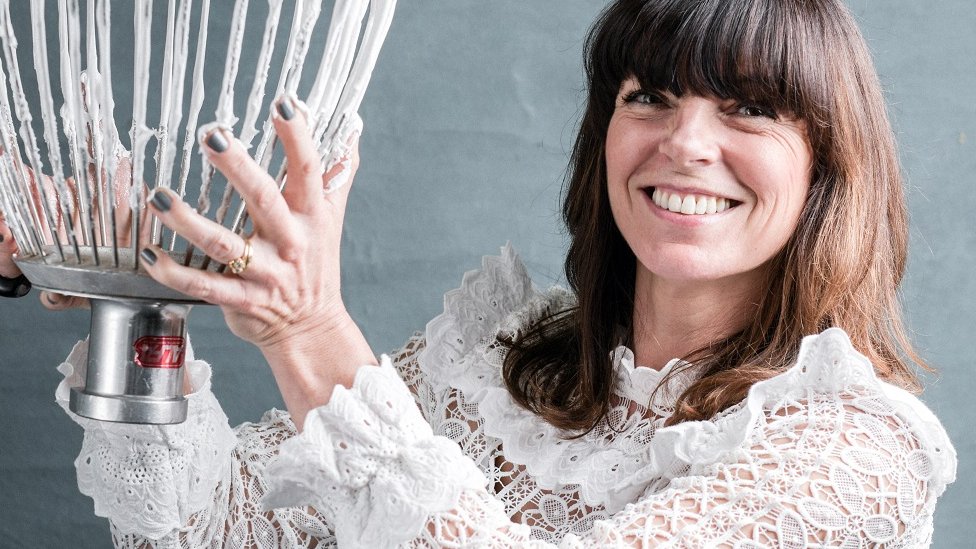By Sophie Madden
BBC News, West Midlands
From meringue makers to manufacturing businesses, firms in Telford export a higher proportion of their wares to the EU than their counterparts in any other town or city in the UK. How do bosses feel as Britain heads towards a decision on a deal – or no deal?
Leanne and Brian Crowther have come a long way since the days of running their cake and bakery business in their garden shed, separating eggs by hand for treats destined for a Shropshire market stall.
Now Flower and White, known for its gourmet meringues, exports to 12 countries, many in the EU, and employs 35 staff at its headquarters in Telford – producing a million meringues a day.
But the global success has meant the firm has endured years of uncertainty over whether the government will strike a Brexit deal – and that was before trade was hit by the coronavirus pandemic.
“We have seen export business fall by 85%, so I think a lot of it is to do with Covid, but also everyone is now just sitting tight. Some customers have been brave enough to order but the orders have been smaller than we expect,” said Mrs Crowther.
Sales to Switzerland, Denmark and Germany continued to do well, she added, but orders to other countries have dried up amid the uncertainty caused by the pandemic and a looming Brexit date.
“It is really tricky to plan. We don’t have the time, in the amount of time that is left, to be organised enough to deal with a no deal. As usual, we just have to get on with it.”
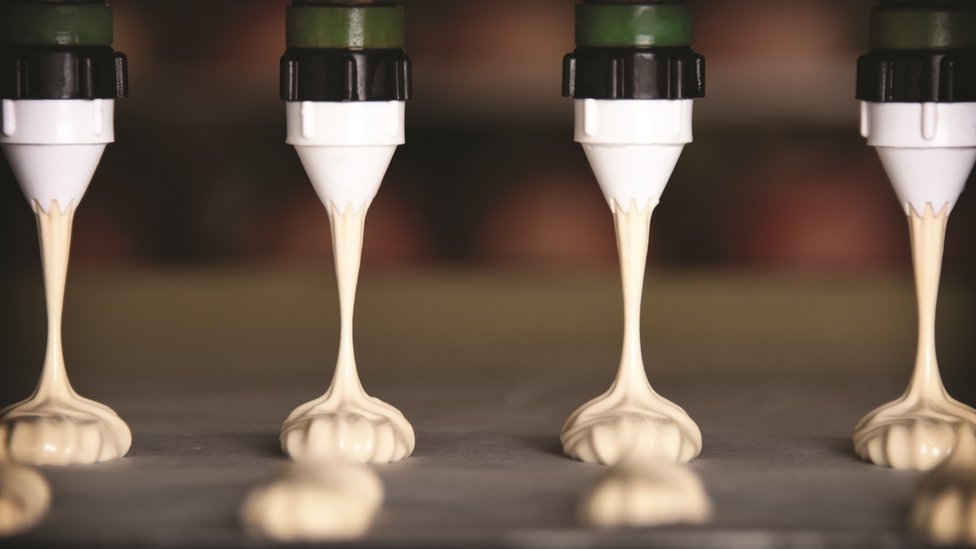
“There will be no winners from a failure to secure a trade deal with the EU as it is the most important customer for every city and large town in Britain,” Centre for Cities’ Director of Policy and Research Paul Swinney said.
“For Telford, the failure to sign a comprehensive trade deal covering both goods and services would be very damaging to the local economy.”
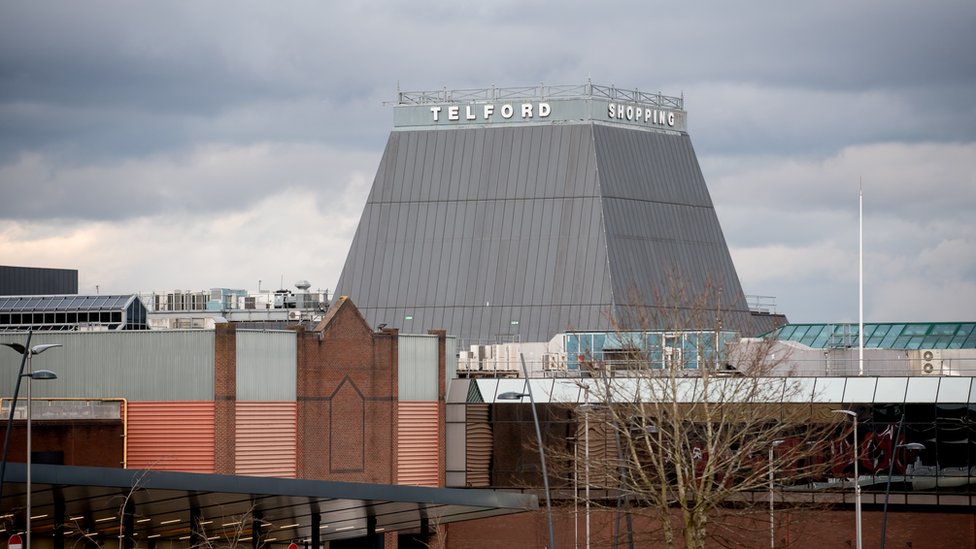
Tim Luft, from the Telford Business Board, said this tradition of manufacturing was part of why exports in Telford were so high.
“Telford has a lot of manufacturing – a lot of companies working in the supply chain of automotive and aerospace – and in that supply chain a lot of those link into Europe.
“So I absolutely imagine why Telford is such an important town and why companies need to be aware of Brexit for when they are looking to supply goods into Europe or really bring services back into the UK,” he said.
One such manufacturer is Hitherbest, which fabricates sheet metal parts for retail, office, hospitality, rail, museum and education sectors.
It is owned by Dr Nicky Evans, whose father Chris set up the business in 1985. She said an ethos of “prioritising steady long-term growth” meant her company had so far survived 2020 while some others could not.
“In so far as Brexit goes, the primary concern for us is our supply chain, but we have done some due diligence there and are relatively confident we should be able to continue in the event of a no-deal Brexit,” she said.
The company has seen a “push” by companies based in the UK that have previously sourced parts from Europe but were now looking for ways to purchase what they needed domestically, to avoid any supply chain problems once Brexit has taken place, Dr Evans added.
“I think we’re firmly in wait and see mode, we are confident if there is a shock, we will be able to absorb it and we’ll have a look, sort-of, middle of next year and see where we are,” she said.
“From what I’ve seen, the manufacturing sector in the West Midlands is resilient, agile and innovative. It may be a rocky road at times, but I’m optimistic for the future.”
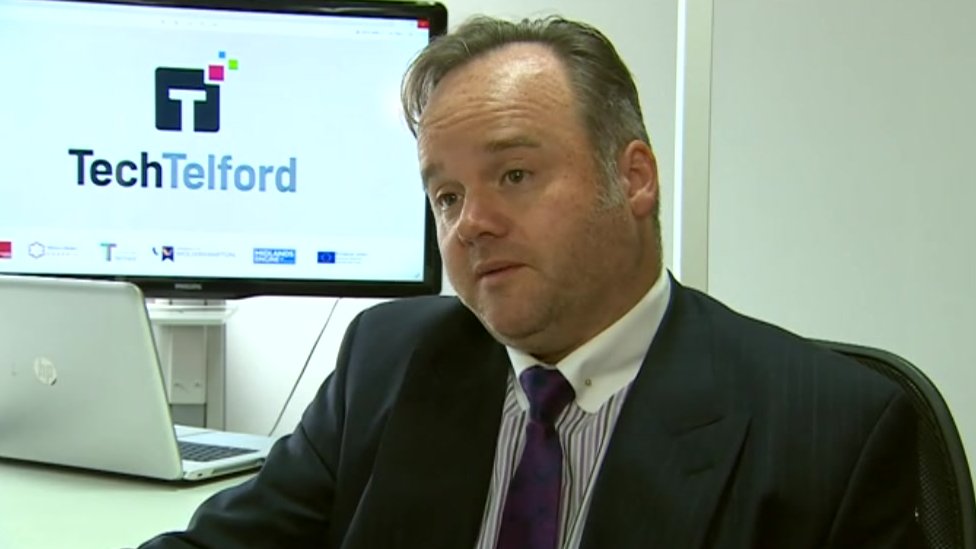
Jonathan Ritson runs Dyson Ritson Consulting, a Telford-based business consultancy firm, and has been working with companies to help them prepare for leaving the EU.
He said Telford was a “diverse economic community”.
“My understanding of things as they are is that the bigger businesses, the ones with more economic clout, the ones that have already got international bases, are going to be better prepared than the small to medium businesses,” he said.
“Businesses have just been focusing on surviving during the pandemic and are only just now, if at all, being able to turn their attention to issue of Brexit.”
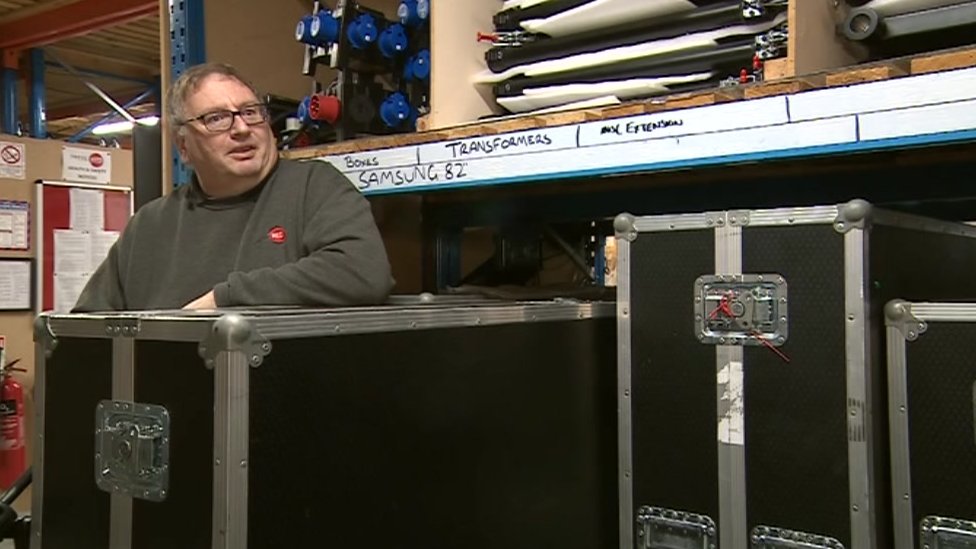
That has been the case for Derek Tallent, director of sound and lighting company Press Red Rentals, who said business had been “pretty tough” because of the shutting of the exhibition industry this year. He said he was not sure what the future would hold.
“Having gone through the ‘we hate Brexit, we don’t want it to happen’ to ‘actually it’s happened and we’re coming towards the end of the transition period’, you just have to bite the bullet and get on with it,” he said.
“I would like us to stay in the single market and the customs union but that’s obviously not going to happen – but it would be nice for them to get a good trade deal.”
The re-emergence of exhibitions in Europe was a good sign, he said, provided a deal – or no deal – allowed the firm to be involved.
“The worst thing will be if we can’t work. If we can’t get permits for trucks, if we can’t get work visas,” he said.
Flower and White has already begun to manage the issues posed by leaving the EU, signing a three-year deal with a US importer and has been focusing on any positive opportunities that could come from the next year.
Leanne Crowther said while uncertainty was a pain, she could not change it and it would do no good to sit around worrying about what was coming.
“I believe small businesses will respond the best to this situation, because you have to – you are used to grasping, but that doesn’t make it desirable by any stretch of the imagination,” she said.
“We have to dig our heels in and get on with it, what else can we do? We can’t lie down.”


